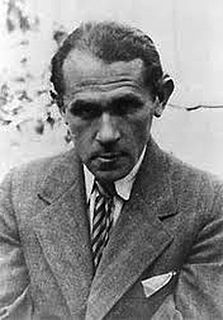A Quote by Elie Wiesel
Some events do take place but are not true;
others are, although they never occurred.
Related Quotes
The Gospels were written in such temporal and geographical proximity to the events they record that it would have been almost impossible to fabricate events. Anyone who cared to could have checked out the accuracy of what they reported. The fact that the disciples were able to proclaim the resurrection in Jerusalem in the face of their enemies a few weeks after the crucifixion shows that what they proclaimed was true, for they could never have proclaimed the resurrection under such circumstances had it not occurred.
Place yourself among those who carry on their lives with passion, and true learning will take place, no matter how humble or exalted the setting. But no matter what path you follow, do not be ashamed of your learning. In some corner of your life, you know more about something than anyone else on earth. The true measure of your education is not what you know, but how you share what you know with others.
True greatness,true leadership,is found in giving yourself in service to others, not in coaxing or inducing others to serve you. True service is never without cost. Often it comes with a painful baptism of suffering. But the true spiritual leader is focused on the service he and she can render to God and other people, not on the residuals and perks of high office or holy title. We must aim to put more into life than we take out.
If our well-being depends upon the interaction between events in our brains and events in the world, and there are better and worse ways to secure it, then some cultures will tend to produce lives that are more worth living than others; some political persuasions will be more enlightened than others; and some world views will be mistaken in ways that cause needless human misery.
The telling of stories, like singing and praying, would seem to be an almost ceremonial act, an ancient and necessary mode of speech that tends the earthly rootedness of human language. For narrated events always happen somewhere. And for an oral culture, that location is never merely incidental to those occurrences. The events belong, as it were, to the place, and to tell the story of those events is to let the place itself speak through the telling.
A particular place in the land is never, for an oral culture, just a passive or inert setting for the human events that occur there. It is an active participant in those occurrences. Indeed, by virtue of its underlying and enveloping presence, the place may even be felt to be the source, the primary power that expresses itself through the various events that unfold there.
Different people call on [God] by different names: some as Allah, some as God, and others as Krishna, Siva, and Brahman. It is like the water in a lake. Some drink it at one place and call it 'jal', others at another place and call it 'pani', and still others at a third place and call it 'water'. The Hindus call it 'jal', the Christians 'water', and the Moslems 'pani'. But it is one and the same thing.





































